Find Trusted Solar Panel Repair & Maintenance Specialists With SolarCompaniesHub
Maximize Your Solar Investment
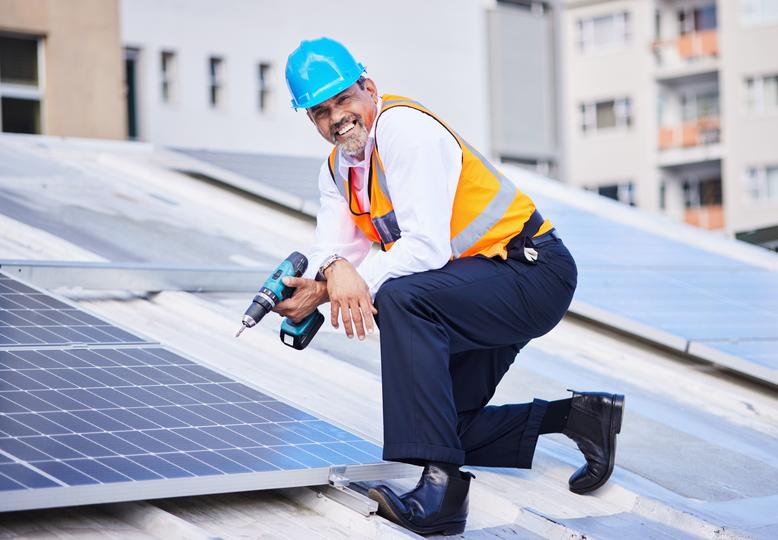
Explore All Your Solar Options
Solar Panel Installation Near Me
Find certified solar installers near you. Get quotes for solar panel installation, repair, and maintenance services.
Commercial Solar Installer
Reduce your business energy costs with solar. Find trusted commercial solar installers and get expert advice on your project.
Get Solar Quotes
Get free, no-obligation solar quotes from top-rated installers in your area. Compare prices and find the best solar solution for your needs.
Find the Right Solar Panel Repair & Maintenance with SolarCompaniesHub
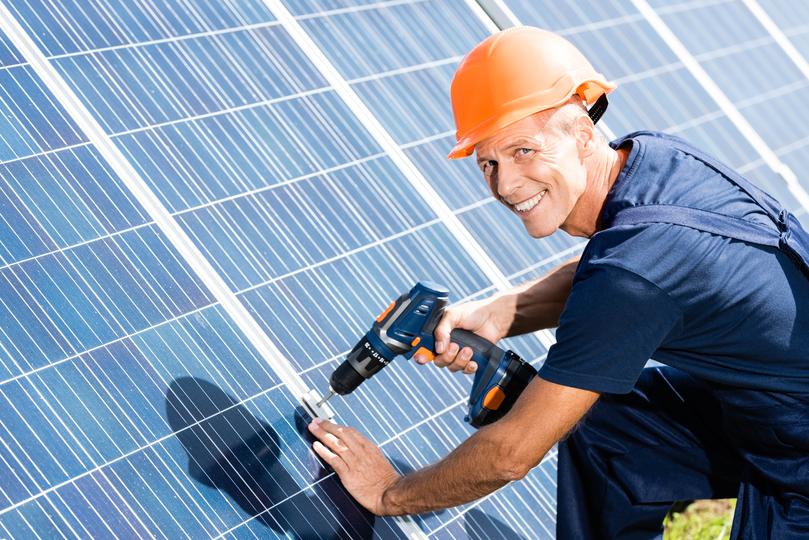
- Tell Us About Your Needs
- Describe your solar panel issue, whether it's a suspected malfunction, performance drop, or just a routine check-up.
- Get Matched with Local Experts
- We'll connect you with qualified Solar Panel Repair & Maintenance in your area who specialize in diagnosing and resolving solar panel issues.
- Receive Quotes & Choose Your Specialist
- Compare quotes from multiple specialists, consider their experience and expertise, and choose the one who best fits your needs.
- Keep Your Solar System Running Smoothly
- With the help of a qualified specialist, ensure your solar panels continue to generate clean energy efficiently, saving you money on your electricity bills for years to come.
Why Choose SolarCompaniesHub for Solar Panel Repair & Maintenance?
Why Choose SolarCompaniesHub for Your Solar Needs?
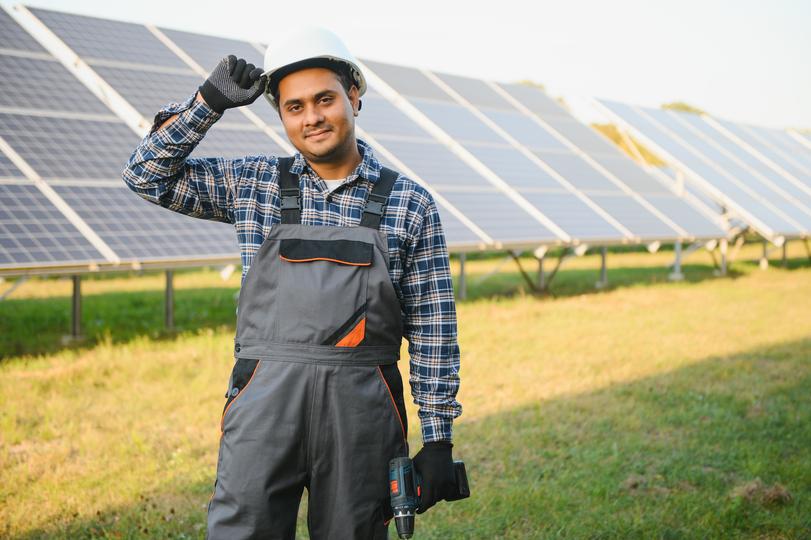
- Expert & Certified Technicians
- We connect you with specialists who have the knowledge and experience to diagnose and resolve a wide range of solar panel issues.
- Convenient and Time-Saving
- Avoid the hassle of searching for repair and maintenance professionals. Our directory streamlines the process, making it easy to find qualified specialists in your area.
- Comprehensive Services
- From troubleshooting and repairs to panel cleaning and preventative maintenance, our network of specialists offers a full spectrum of services to keep your solar system operating efficiently.
- Competitive Pricing
- Compare quotes from multiple specialists to find the best value for your solar panel repair and maintenance needs.
- Peace of Mind
- Ensure the long-term health of your solar investment with expert care and preventative maintenance from trusted professionals.
- Free To Use
- Finding Solar Panel Repair & Maintenance through SolarCompaniesHub is completely free. There are no hidden fees or obligations. Get started today!
Keeping Your Business Solar System Running Optimally
Commercial Solar Panel Repair & Maintenance
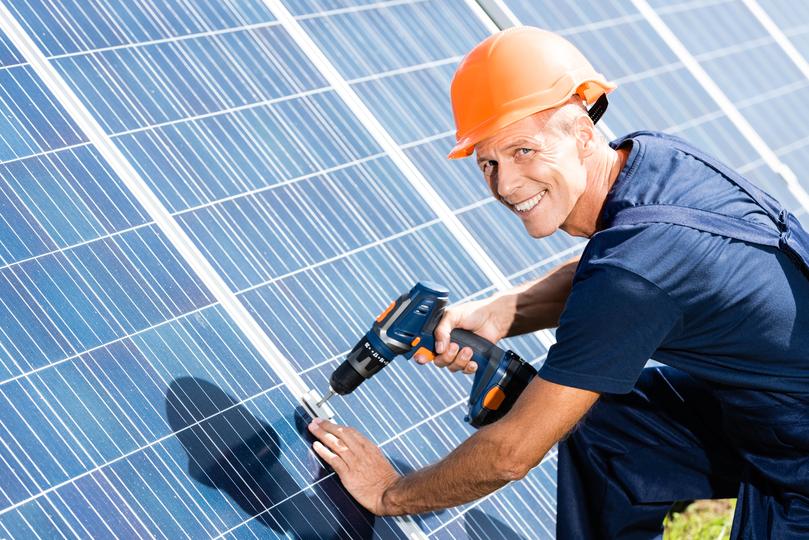
Business Solar Installers
Reduce your business energy costs with solar. Find trusted commercial solar installers and get expert advice on your project.

Solar Panel Cleaning
Keep your solar panels running smoothly. We offer expert solar panel repair and maintenance services to maximize your energy savings.
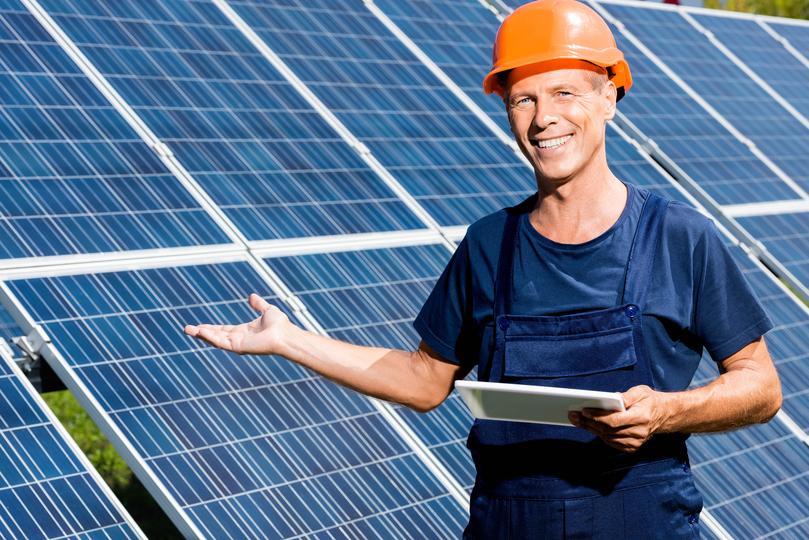
Get Solar Quotes
Get free, no-obligation solar quotes from top-rated installers in your area. Compare prices and find the best solar solution for your needs.
Extend the Life of Your Home Solar System
Residential Solar Panel Repair & Maintenance
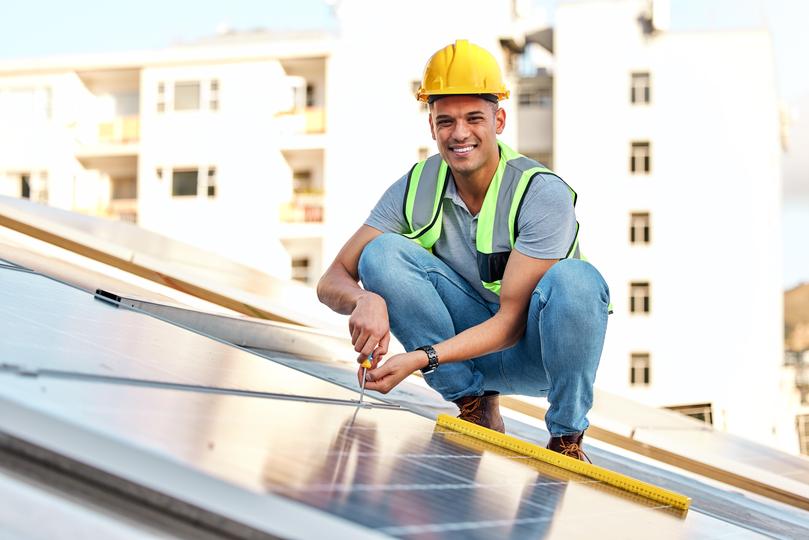
Solar Contractor
Find certified solar installers near you. Get quotes for solar panel installation, repair, and maintenance services.

Solar Repair
Keep your solar panels running smoothly. We offer expert solar panel repair and maintenance services to maximize your energy savings.

Solar Quotes
Get free, no-obligation solar quotes from top-rated installers in your area. Compare prices and find the best solar solution for your needs.
Ready to Schedule a Solar Panel Check-Up?
Find Trusted Solar Panel Repair & Maintenance on SolarCompaniesHub
Solar Panel Repair & Maintenance Glossary
Solar Panel
Photovoltaic (PV) Cell
Solar Array
Inverter
Microinverter
Power Optimizer
Monitoring System
Panel Degradation
Shading
Ground Fault
Arc Fault
Solar Panel Cleaning
Preventative Maintenance
Troubleshooting
Solar Panel Warranty
Solar Panel Repair & Maintenance FAQ
How often do solar panels need to be maintained?
What are the common signs that my solar panels need repair?
- Drop in Energy Production: If you notice a significant decrease in your solar system's energy output, it could indicate a problem with the panels, inverter, or wiring.
- Visible Damage: Cracks, chips, or other visible damage to the panels require immediate attention.
- Error Codes or Warning Lights: If your inverter displays error codes or warning lights, it signals a malfunction that needs to be addressed.
- Unusual Noises: Buzzing, humming, or crackling sounds coming from the panels or inverter can indicate a problem.
- Loose or Damaged Wiring: Inspect the wiring connections for any signs of looseness, damage, or corrosion.
How much does it cost to repair solar panels?
- Panel Replacement: Replacing a single damaged panel can cost [estimated range].
- Inverter Repair or Replacement: Repairing or replacing an inverter can cost [estimated range].
- Wiring Repair: Fixing faulty wiring connections typically costs [estimated range].
- Troubleshooting and Diagnostics: The cost for a professional to diagnose the problem can range from [estimated range].
How do I find a reputable solar panel repair company?
- Use a Directory Like SolarCompaniesHub: We connect you with pre-screened solar repair specialists in your area.
- Check Online Reviews: Look for positive reviews on Google, Yelp, and other reputable platforms.
- Ask for Referrals: Get recommendations from friends, family, or neighbors who have had solar panel repairs done.
- Verify Credentials: Ensure the company is licensed, insured, and certified by relevant industry organizations.
- Get Multiple Quotes: Compare quotes from several companies, considering price, experience, and warranty information.
- Ask Questions: Don't hesitate to ask about their experience with similar repairs, their process, and their warranties.
Are solar panel repairs covered by warranty?
- Severe weather (hail, wind)
- Falling debris (trees, branches)
- Improper installation
- Neglect or lack of maintenance
What are the most common solar panel problems?
- Panel Degradation: Over time, solar panels naturally lose some efficiency, typically less than 1% per year.
- Shading: Objects, like trees, buildings, or even bird droppings, can block sunlight from reaching the panels, reducing their output.
- Microcracks: Tiny cracks in the solar cells can affect performance. These cracks may not be visible to the naked eye.
- Inverter Issues: Inverters can malfunction due to various reasons, including overheating, electrical surges, or component failure.
- Wiring Problems: Loose, corroded, or damaged wiring can disrupt the flow of electricity from the panels to the inverter.
- Roof Leaks: Water damage from roof leaks can affect the panels and wiring.
- Pest Infestation: Rodents or birds can sometimes damage wiring or nesting under panels.
Can I clean my solar panels myself?
- Choose a Cool, Overcast Day: Avoid cleaning panels in direct sunlight or when they are hot, as the cleaning solution can dry too quickly and leave streaks.
- Use a Soft Brush or Sponge: Avoid abrasive materials that could scratch the panels. A soft-bristled brush or a non-abrasive sponge is ideal.
- Use Mild Soap and Water: A gentle cleaning solution of mild soap (dish soap) and water is usually sufficient. Avoid using harsh chemicals or detergents.
- Rinse Thoroughly: Rinse the panels thoroughly with clean water to remove any soap residue.
- Safety First: Be careful when working on your roof. Use a sturdy ladder and consider wearing a safety harness. If you are uncomfortable working on your roof, it's best to hire a professional.
What are the benefits of regular solar panel maintenance?
- Increased Energy Efficiency: Clean and well-maintained panels produce more energy, maximizing your solar savings.
- Extended System Lifespan: Regular inspections and timely repairs can prevent minor problems from escalating into major issues, prolonging the lifespan of your solar system.
- Reduced Repair Costs: Catching problems early can prevent more extensive and costly repairs down the line.
- Improved Safety: Maintenance checks can identify potential electrical or fire hazards, keeping your system safe.
- Warranty Compliance: Some solar panel warranties require regular maintenance to remain valid.
What is a solar panel monitoring system?
- Monitor energy production
- Detect performance issues
- Track energy savings
- Receive alerts for malfunctions
How do I know if my solar inverter is working properly?
- Checking the Display: Most inverters have a display screen that shows real-time energy production, system status, and any error codes. If the display is blank or shows an error message, it indicates a problem.
- Monitoring Energy Production: Use your solar monitoring system (if you have one) to track energy production. If you notice a significant drop in output, it could be due to an inverter issue.
- Listening for Unusual Noises: Buzzing, humming, or clicking sounds from the inverter can signal a problem.
- Checking for Overheating: Inverters can overheat, especially in hot weather. If the inverter feels excessively hot to the touch, it may be malfunctioning.
What are some tips for extending the life of my solar panels?
- Regular Cleaning: Keep the panels clean to ensure optimal sun exposure and energy production.
- Preventative Maintenance: Schedule annual inspections by a qualified technician to catch potential problems early.
- Address Issues Promptly: If you notice any signs of damage or malfunction, contact a repair specialist immediately.
- Minimize Shading: Keep trees and vegetation trimmed to prevent shading.
- Monitor Performance: Regularly check your monitoring system (if available) to track energy production and identify any performance issues.
- Protect from Extreme Weather: While solar panels are designed to withstand most weather conditions, it's a good idea to protect them from extreme events, like hailstorms, if possible.
How long do solar panel inverters typically last?
What causes solar panel microcracks?
- Manufacturing Defects: Some panels may have tiny cracks from the manufacturing process.
- Thermal Stress: Temperature fluctuations, especially rapid heating and cooling, can stress the panels and cause microcracks.
- Mechanical Stress: Impact from hail, falling debris, or improper handling during installation can lead to microcracks.
- Transportation and Handling: Rough handling during transportation or installation can also cause stress fractures.
What are the different types of solar panel warranties?
Product Warranty: This warranty covers defects in materials and workmanship for a specified period, typically 10-25 years. It ensures that the panels will be free from manufacturing defects that affect their performance.
Performance Warranty: This warranty guarantees a minimum level of power output from the panels over a specified period, usually 25 years. It ensures that the panels will maintain a certain level of efficiency over their lifetime.
The length and coverage of these warranties can vary by manufacturer and panel type. It's important to review the warranty details carefully before purchasing panels.
How does shading affect solar panel efficiency?
- Microinverters or Power Optimizers: These devices can mitigate the effects of shading by optimizing the output of each individual panel.
- Strategic Panel Placement: A qualified installer will assess your roof and design a system layout that minimizes potential shading from trees, buildings, or other obstructions.
Do solar panels work in the winter or on cloudy days?
What are solar panel ground faults?
- Damaged wiring
- Faulty connections
- Water intrusion
- Other insulation breaches
- Cause electric shock
- Start a fire
- Damage equipment
- Ensure proper grounding of the system
- Regularly inspect wiring for damage
- Address water leaks promptly
What are solar panel arc faults, and how are they prevented?
- Use high-quality wiring and components.
- Ensure proper installation by a qualified electrician.
- Install arc-fault circuit interrupters (AFCIs) in your solar panel system. AFCIs are safety devices designed to detect and interrupt arc faults, protecting your system and property from fire hazards.
- Regularly inspect wiring and connections for any signs of damage or looseness.
Can solar panels be damaged by hail?
- Choosing impact-resistant solar panels: Some manufacturers offer panels specifically designed for enhanced hail resistance.
- Protecting your panels during hailstorms: If a hailstorm is forecast, consider covering your panels with a protective barrier, such as a tarp or plywood, if feasible.
- Inspecting panels after a hailstorm: After a hailstorm, carefully inspect your panels for any signs of damage.
What should I do if my solar panels are damaged?
- Safety First: Do not attempt to repair the panels yourself. Solar panels generate electricity, even when damaged, and can pose an electrical shock hazard.
- Shut Off the System: If possible, turn off the solar system at the main disconnect switch. If you are unsure how to do this, consult with your installer or a qualified electrician.
- Document the Damage: Take clear photos or videos of the damage for insurance purposes.
- Contact Your Installer or a Repair Specialist: Get in touch with your solar installer or a qualified solar panel repair company to assess the damage and provide repair options.
- Contact Your Insurance Company: If the damage is due to a covered event, such as a hailstorm or falling debris, file a claim with your insurance company.
Do solar panels need to be removed for roof repairs?
Can solar panels cause roof leaks?
- Improper Flashing: Flashing is a thin, waterproof material used to seal gaps and prevent water intrusion around penetrations in the roof, such as vents, chimneys, and solar panel mounts. If flashing is installed incorrectly, water can seep through the roof.
- Damaged Roof Shingles: If roof shingles are damaged during the installation process, it can create openings for water to enter.
- Improper Sealant Application: Sealant is used to create a watertight barrier around solar panel mounts and other roof penetrations. If the sealant is not applied correctly, it can deteriorate and allow water to leak through.
- Uses high-quality flashing and sealants
- Follows industry best practices for installation
- Has a thorough understanding of roofing systems.
How does snow affect my solar panels?
- Using a Roof Rake: Carefully remove snow from the panels using a roof rake designed for this purpose. Avoid using abrasive tools or excessive force that could damage the panels.
- Hiring a Professional: If you are uncomfortable removing snow from your roof or if your panels are difficult to access, consider hiring a professional solar panel cleaning or maintenance company.
Can a power surge damage my solar panels?
- Lightning Strikes: A direct or nearby lightning strike can induce a powerful surge in electrical lines.
- Grid Issues: Fluctuations or disruptions in the power grid can cause surges.
- Faulty Wiring: Damaged or poorly installed wiring within your home or solar system can create surge conditions.
- Malfunctioning Appliances: Some appliances, such as refrigerators or air conditioners, can create surges when they cycle on or off.
- Surge Protectors: Install surge protectors at the main electrical panel and at the point where your solar system connects to the grid.
- Grounding: Ensure your solar system is properly grounded to provide a path for excess current to flow safely to the earth.
- Lightning Protection (if necessary): In areas prone to lightning strikes, consider installing a lightning protection system to divert lightning strikes away from your home and solar system.
How often do solar panels need to be maintained?
What are the common signs that my solar panels need repair?
- Drop in Energy Production: If you notice a significant decrease in your solar system's energy output, it could indicate a problem with the panels, inverter, or wiring.
- Visible Damage: Cracks, chips, or other visible damage to the panels require immediate attention.
- Error Codes or Warning Lights: If your inverter displays error codes or warning lights, it signals a malfunction that needs to be addressed.
- Unusual Noises: Buzzing, humming, or crackling sounds coming from the panels or inverter can indicate a problem.
- Loose or Damaged Wiring: Inspect the wiring connections for any signs of looseness, damage, or corrosion.
How much does it cost to repair solar panels?
- Panel Replacement: Replacing a single damaged panel can cost [estimated range].
- Inverter Repair or Replacement: Repairing or replacing an inverter can cost [estimated range].
- Wiring Repair: Fixing faulty wiring connections typically costs [estimated range].
- Troubleshooting and Diagnostics: The cost for a professional to diagnose the problem can range from [estimated range].
How do I find a reputable solar panel repair company?
- Use a Directory Like SolarCompaniesHub: We connect you with pre-screened solar repair specialists in your area.
- Check Online Reviews: Look for positive reviews on Google, Yelp, and other reputable platforms.
- Ask for Referrals: Get recommendations from friends, family, or neighbors who have had solar panel repairs done.
- Verify Credentials: Ensure the company is licensed, insured, and certified by relevant industry organizations.
- Get Multiple Quotes: Compare quotes from several companies, considering price, experience, and warranty information.
- Ask Questions: Don't hesitate to ask about their experience with similar repairs, their process, and their warranties.
Are solar panel repairs covered by warranty?
- Severe weather (hail, wind)
- Falling debris (trees, branches)
- Improper installation
- Neglect or lack of maintenance
What are the most common solar panel problems?
- Panel Degradation: Over time, solar panels naturally lose some efficiency, typically less than 1% per year.
- Shading: Objects, like trees, buildings, or even bird droppings, can block sunlight from reaching the panels, reducing their output.
- Microcracks: Tiny cracks in the solar cells can affect performance. These cracks may not be visible to the naked eye.
- Inverter Issues: Inverters can malfunction due to various reasons, including overheating, electrical surges, or component failure.
- Wiring Problems: Loose, corroded, or damaged wiring can disrupt the flow of electricity from the panels to the inverter.
- Roof Leaks: Water damage from roof leaks can affect the panels and wiring.
- Pest Infestation: Rodents or birds can sometimes damage wiring or nesting under panels.
Can I clean my solar panels myself?
- Choose a Cool, Overcast Day: Avoid cleaning panels in direct sunlight or when they are hot, as the cleaning solution can dry too quickly and leave streaks.
- Use a Soft Brush or Sponge: Avoid abrasive materials that could scratch the panels. A soft-bristled brush or a non-abrasive sponge is ideal.
- Use Mild Soap and Water: A gentle cleaning solution of mild soap (dish soap) and water is usually sufficient. Avoid using harsh chemicals or detergents.
- Rinse Thoroughly: Rinse the panels thoroughly with clean water to remove any soap residue.
- Safety First: Be careful when working on your roof. Use a sturdy ladder and consider wearing a safety harness. If you are uncomfortable working on your roof, it's best to hire a professional.
What are the benefits of regular solar panel maintenance?
- Increased Energy Efficiency: Clean and well-maintained panels produce more energy, maximizing your solar savings.
- Extended System Lifespan: Regular inspections and timely repairs can prevent minor problems from escalating into major issues, prolonging the lifespan of your solar system.
- Reduced Repair Costs: Catching problems early can prevent more extensive and costly repairs down the line.
- Improved Safety: Maintenance checks can identify potential electrical or fire hazards, keeping your system safe.
- Warranty Compliance: Some solar panel warranties require regular maintenance to remain valid.
What is a solar panel monitoring system?
- Monitor energy production
- Detect performance issues
- Track energy savings
- Receive alerts for malfunctions
How do I know if my solar inverter is working properly?
- Checking the Display: Most inverters have a display screen that shows real-time energy production, system status, and any error codes. If the display is blank or shows an error message, it indicates a problem.
- Monitoring Energy Production: Use your solar monitoring system (if you have one) to track energy production. If you notice a significant drop in output, it could be due to an inverter issue.
- Listening for Unusual Noises: Buzzing, humming, or clicking sounds from the inverter can signal a problem.
- Checking for Overheating: Inverters can overheat, especially in hot weather. If the inverter feels excessively hot to the touch, it may be malfunctioning.
What are some tips for extending the life of my solar panels?
- Regular Cleaning: Keep the panels clean to ensure optimal sun exposure and energy production.
- Preventative Maintenance: Schedule annual inspections by a qualified technician to catch potential problems early.
- Address Issues Promptly: If you notice any signs of damage or malfunction, contact a repair specialist immediately.
- Minimize Shading: Keep trees and vegetation trimmed to prevent shading.
- Monitor Performance: Regularly check your monitoring system (if available) to track energy production and identify any performance issues.
- Protect from Extreme Weather: While solar panels are designed to withstand most weather conditions, it's a good idea to protect them from extreme events, like hailstorms, if possible.
How long do solar panel inverters typically last?
What causes solar panel microcracks?
- Manufacturing Defects: Some panels may have tiny cracks from the manufacturing process.
- Thermal Stress: Temperature fluctuations, especially rapid heating and cooling, can stress the panels and cause microcracks.
- Mechanical Stress: Impact from hail, falling debris, or improper handling during installation can lead to microcracks.
- Transportation and Handling: Rough handling during transportation or installation can also cause stress fractures.
What are the different types of solar panel warranties?
Product Warranty: This warranty covers defects in materials and workmanship for a specified period, typically 10-25 years. It ensures that the panels will be free from manufacturing defects that affect their performance.
Performance Warranty: This warranty guarantees a minimum level of power output from the panels over a specified period, usually 25 years. It ensures that the panels will maintain a certain level of efficiency over their lifetime.
The length and coverage of these warranties can vary by manufacturer and panel type. It's important to review the warranty details carefully before purchasing panels.
How does shading affect solar panel efficiency?
- Microinverters or Power Optimizers: These devices can mitigate the effects of shading by optimizing the output of each individual panel.
- Strategic Panel Placement: A qualified installer will assess your roof and design a system layout that minimizes potential shading from trees, buildings, or other obstructions.
Do solar panels work in the winter or on cloudy days?
What are solar panel ground faults?
- Damaged wiring
- Faulty connections
- Water intrusion
- Other insulation breaches
- Cause electric shock
- Start a fire
- Damage equipment
- Ensure proper grounding of the system
- Regularly inspect wiring for damage
- Address water leaks promptly
What are solar panel arc faults, and how are they prevented?
- Use high-quality wiring and components.
- Ensure proper installation by a qualified electrician.
- Install arc-fault circuit interrupters (AFCIs) in your solar panel system. AFCIs are safety devices designed to detect and interrupt arc faults, protecting your system and property from fire hazards.
- Regularly inspect wiring and connections for any signs of damage or looseness.
Can solar panels be damaged by hail?
- Choosing impact-resistant solar panels: Some manufacturers offer panels specifically designed for enhanced hail resistance.
- Protecting your panels during hailstorms: If a hailstorm is forecast, consider covering your panels with a protective barrier, such as a tarp or plywood, if feasible.
- Inspecting panels after a hailstorm: After a hailstorm, carefully inspect your panels for any signs of damage.
What should I do if my solar panels are damaged?
- Safety First: Do not attempt to repair the panels yourself. Solar panels generate electricity, even when damaged, and can pose an electrical shock hazard.
- Shut Off the System: If possible, turn off the solar system at the main disconnect switch. If you are unsure how to do this, consult with your installer or a qualified electrician.
- Document the Damage: Take clear photos or videos of the damage for insurance purposes.
- Contact Your Installer or a Repair Specialist: Get in touch with your solar installer or a qualified solar panel repair company to assess the damage and provide repair options.
- Contact Your Insurance Company: If the damage is due to a covered event, such as a hailstorm or falling debris, file a claim with your insurance company.
Do solar panels need to be removed for roof repairs?
Can solar panels cause roof leaks?
- Improper Flashing: Flashing is a thin, waterproof material used to seal gaps and prevent water intrusion around penetrations in the roof, such as vents, chimneys, and solar panel mounts. If flashing is installed incorrectly, water can seep through the roof.
- Damaged Roof Shingles: If roof shingles are damaged during the installation process, it can create openings for water to enter.
- Improper Sealant Application: Sealant is used to create a watertight barrier around solar panel mounts and other roof penetrations. If the sealant is not applied correctly, it can deteriorate and allow water to leak through.
- Uses high-quality flashing and sealants
- Follows industry best practices for installation
- Has a thorough understanding of roofing systems.
How does snow affect my solar panels?
- Using a Roof Rake: Carefully remove snow from the panels using a roof rake designed for this purpose. Avoid using abrasive tools or excessive force that could damage the panels.
- Hiring a Professional: If you are uncomfortable removing snow from your roof or if your panels are difficult to access, consider hiring a professional solar panel cleaning or maintenance company.
Can a power surge damage my solar panels?
- Lightning Strikes: A direct or nearby lightning strike can induce a powerful surge in electrical lines.
- Grid Issues: Fluctuations or disruptions in the power grid can cause surges.
- Faulty Wiring: Damaged or poorly installed wiring within your home or solar system can create surge conditions.
- Malfunctioning Appliances: Some appliances, such as refrigerators or air conditioners, can create surges when they cycle on or off.
- Surge Protectors: Install surge protectors at the main electrical panel and at the point where your solar system connects to the grid.
- Grounding: Ensure your solar system is properly grounded to provide a path for excess current to flow safely to the earth.
- Lightning Protection (if necessary): In areas prone to lightning strikes, consider installing a lightning protection system to divert lightning strikes away from your home and solar system.